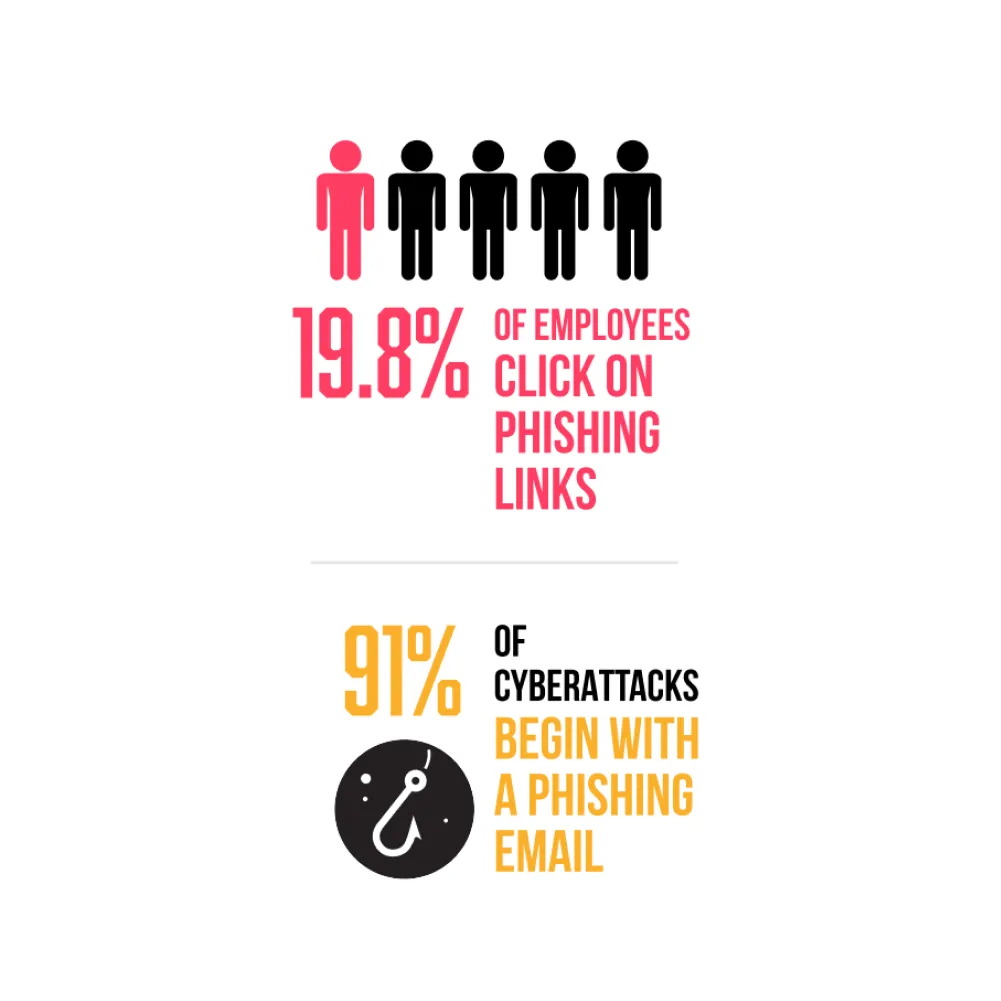Data security refers to safeguarding your business to prevent unwanted access to its databases, websites, and systems. This procedure provides a mechanism to safeguard data against loss or corruption.
Data security is crucial and should be considered whether you are the CEO of a small or large business in order to prevent security breaches. Implementing data security solutions as soon as feasible is one suggestion you should consider if you want to safeguard your business from cyberattacks.
Cyberattacks have become increasingly sophisticated, making it easier for hackers to access networks through phishing and social engineering tactics. Identity theft, coercing staff into disclosing credentials, and clicking on infected links and attachments are just a few of the methods used to infiltrate a work laptop or network. Once inside, cybercriminals can quickly infect the entire network with malware and ransomware. Protecting your organization from these cyber threats requires vigilance and the suitable security measures in place. Cybersecurity Little Rock experts protect your business with reliable security solutions.
Due to the fact that large corporations have developed and tested their security procedures over the past few years, they frequently have a significant advantage in the data protection game. However, they also have more complicated requirements. In protecting client information, many also need to safeguard financial and intellectual property data. Let’s examine the most effective techniques for securing corporate data and safeguarding data within an organization.

Protect Data in Big Organization
Superior Defence Against External Attacks
It’s important to remember that a cyber incident has the ability to cause significant harm to business productivity and reputation. Therefore, ensuring that your security measures are up-to-date and effective is necessary.
One of the best ways to do this is by conducting regular penetration tests. These tests simulate attacks on your business network to protect against current and emerging threats. In addition, you can improve your defenses by understanding how hackers work and what they can do.
It’s also essential to have a team of professionals who can respond to any potential attack. This team should include IT security, digital forensics, and law enforcement specialists who can help investigate and mitigate any potential damage caused by a cyber incident.
Being Aware of the Location and Direction of Data
Knowing where data is stored is essential, as it allows organizations to take the necessary measures to protect their data. It can help them assess the current security measures and ensure they are up to par. It can also help them identify their vulnerabilities and make changes to secure their data better. It also allows organizations to track their activity and remain secure.
It ensures that any changes made to the environment are documented and understood by everyone in the organization and can be followed up on as necessary. In addition, data security for businesses helps them optimize their storage resources and reduce costs while protecting sensitive information.
Knowing which data is stored and where it is stored is one of the most important steps for any business to take in order to effectively protect their data. Data protection professionals should work with IT departments to ensure that all appropriate safeguards are in place for storing and handling data, including verifying that systems, networks, and devices used for storing or transmitting sensitive information are secure. This includes ensuring that policies, procedures, and controls are in place to safeguard sensitive data. In addition, it involves following strict agreements between parties involved in data protection, such as vendor contracts, security compliance requirements, privacy policies, etc.
Universal Use of Encryption
The use of encryption is vital to secure your sensitive company data, such as financial and personal information. It also helps ensure the privacy and security of this information. For example, sending a payment through your company’s electronic banking platform must be encrypted to prevent anyone from seeing it. On the other hand, if you receive an encrypted email attachment or see an encrypted URL on a website, the data is protected from being viewed by anyone else.
The use of encryption is also important for securing customer data. For example, suppose a business has valuable information about its customers, such as their credit card numbers or personally identifiable information (PII). In that case, it must take steps to protect that data from being accessed or stolen by others. One way to do this is by encrypting systems that handle customer data, such as point-of-sale systems or payment gateways. An organization can also implement measures to make sure employees do not have access to sensitive data without proper authorizations or oversight. Businesses can protect their customers’ privacy and improve their business data security by taking these steps.
Training Employees At All Levels
Employers may take several steps to ensure that their employees are informed about compliance and security regulations. For instance, large corporations often hold regular meetings for all employees to update them on new laws, policies, or procedures affecting their business. They also provide training sessions and workshops for new employees to familiarize them with the company’s policies and procedures.
Employees at all levels should be informed of the security measures to protect their data. This includes not sharing personal information outside of the company’s secure systems, not installing unsecured devices such as laptops, and not using public Wi-Fi networks that could transmit sensitive data. Large corporations have teams of seasoned professionals who can provide advice and assistance in managing these issues.
Developing BYOD Guidelines
It is recommended that companies create a comprehensive and robust security policy for all devices to prevent unauthorized access. A well-thought-out BYOD strategy involves setting up proper controls and procedures to ensure corporate data confidentiality, integrity, and availability. It also includes securing business data with strong passwords, updating them with the latest patches, and limiting remote access.
A lack of policies can lead to a number of security issues, including data loss, data theft, and even identity theft. Considerations such as encryption on all devices, mandatory employee training on how to use company-issued devices securely, and auditing processes are essential aspects of a strong BYOD policy. Visit IT Consulting Little Rock professionals to create a robust BYOD policy to help your business stay secure while embracing technological advancements.

